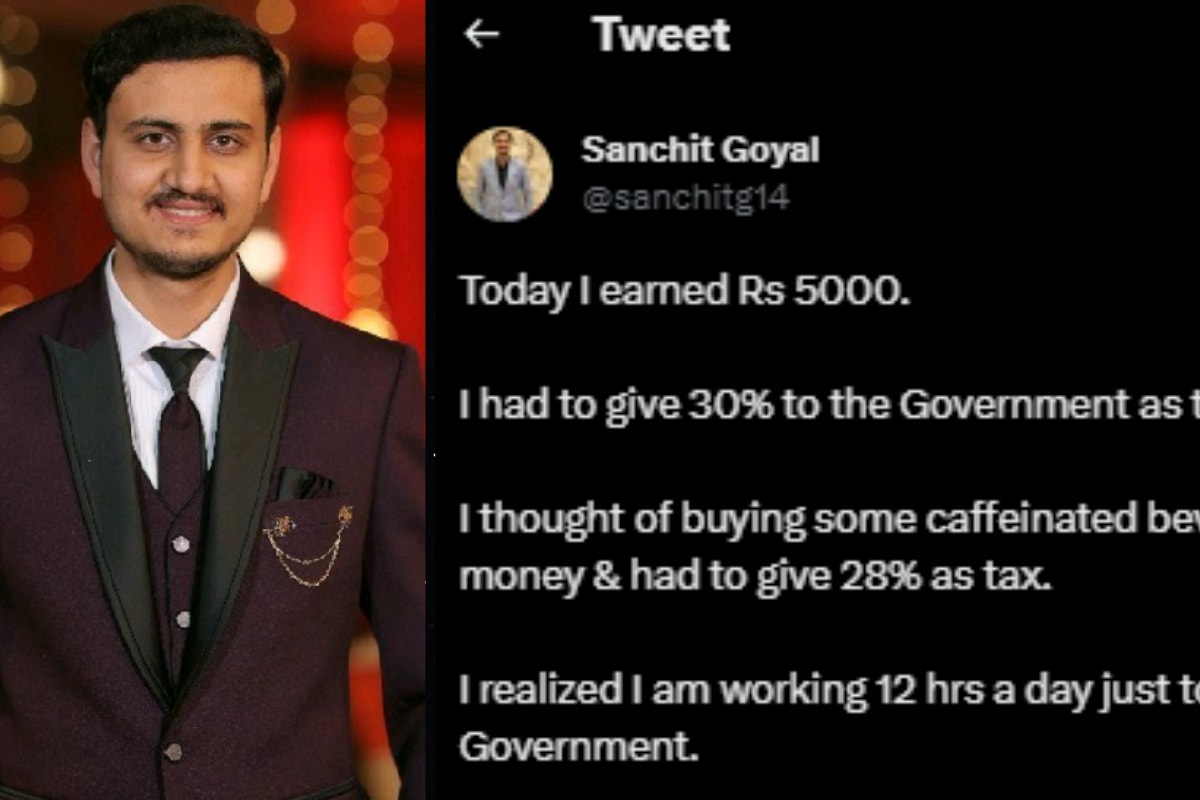Exploring The Effects of Taxes: Why Are Indians So Angry?

As the proverb goes, “two things in life are certain, death and taxes.” Indian citizen’s anger resulting from the exploitative taxes are finally showing. Almost every day, some form of violence makes it onto the first page of Indian newspapers, highlighting the frustrations of people. There is an exponential rise in the overt incidents of violence over trivial matters—attacks in broad daylight. Murders over Parking lots, Facebook posts, and more crimes have been significantly rising, not just in the metropolises but in rural settings too. What is setting Indian people’s teeth on edge? Taxes! Taxes is the reason why there is a mounting rage in Indians which foretells the gloomy realities of the nation, where impermanent cases of bad blood and situational squabbles become matters of death.

India is witnessing a collapse of rationality in its people, giving rise to a strong sense of apathy within them. Man is in constant strife with himself, producing violent outrage and rampant crimes. Apart from political instability, economic crisis, and a growing trend of hate-mongering, Indian’s feverish anger is deep-seated in taxes. More often than not, the anger of a salary-earner is intrinsically linked to taxation policies. Bearing in mind the proximity between the two, Shirley Tillotson, author of ‘Give and Take: The Citizen Taxpayer and the Rise of Canadian Democracy’, rightly stated in an article that Tax anger is directly linked to one’s personal identity more than it is about money. The majority of taxpayers are the salaried class, who are neck-deep in tax affairs that are making them increasingly unhappy as each day passes.
Even though taxes are an indispensable part of running the country, the system has allowed the rich to evade them. While the common man falters through the winds of increasing costs of living, the rich seem to create loopholes to dodge, creating an irreconcilable dissatisfaction with the government. The roads are broken, the illiteracy rate is high, and the infrastructure is weak. Indians are deprived of their fundamental rights despite paying painstakingly high taxes, making tax anger justified. Over the years, the disparity among taxpayers has widened, with the administration getting more lopsided and failing to provide substantial benefits. All talks, no work.

The resentment that the salaried class has harboured is a direct result of tax rules. The government is taxing a very small number of people because the rich don’t pay it. Zero taxes are being paid by the rich and powerful, and it is the common man whose labour is perpetually exploited. It is the powerlessness that the government exhaustively cashes in on that is bound to produce a restrained sense of anger. The government strategically creates a delusive picture that alters numbers with cryptic data and records.
Sanchit Goyal, a growth manager at Flipkart, tweeted, “Today I earned Rs. 5000. I had to give 30% to the Government as tax. I thought of buying some caffeinated beverages from the remaining money and had to give 28% as tax. I realized I am working 12 hours a day just to pay 50% + of my income to the Government.” Following Goyal’s irate tweet, there was another tweet. However, this tweet was rather a sarcastic attack on the Indian tax system. He wrote, “Tax earned by Government on Rs 20 choco-bar : 18% GST by end customer- Rs 3.6 Calculated on unit economics- 18% on Sugar- Rs. 0.36 18% on Cocoa: Rs.0.9 12% on Condensed Milk- Rs.0.6 and 5% on Cream- 0.1 Total #GST earned – Rs 5.5 which is close to 27.5% of the final cost. #tax. “

Goyal’s tweet is an insight into the minds of salaried-class people who have now surrendered to the distressing realities of tax burden. In a country where the foundations of mental health are grossly underdeveloped, angry taxpayers have now conditioned themselves to swallow their angst and internalize their issues. The suppressed anger results in violence that reveals the gradual decline in people’s sanity. As a generation, we are underestimating the severity of angry Indian people, who are now tired of paying more than they get. The tax burden on the salaried class reveals the saddening landscape of people who restrain themselves in silent protest, harbouring hostility. The common man is subjected to changing regulations of tax laws that elevate confusion in people, leaving things uncertain.
Crime flourishes in poverty, where there is lack of education and equal distribution of resources. The hollows of the tax burden push marginalized people to the edge of vulnerability, where the moral apparatus doesn’t exist. There is a price to being poor, too. It is tone-deaf to address growing crimes without acknowledging the class bias that exists in a country like India. Anger, hostility, and distrust are byproducts of systemic polarization. In an already declining economy, tax burden reveals the insufficiency of government in curbing economic bias and lack of transparency.

The future of people becomes increasingly jaded with such financial stagnancy, along with disenfranchising honest men from clean water, corruption-free offices, and a hopeful future. Working-class people’s rage has also been greatly fueled by a communally charged environment. While some lament the state of affairs, others submerge in the hollows of detestation. Owing to the fact that people have lost their ability to contain their indignation, they have begun to reveal a concealed sense of perplexity, which somehow dismantles the foundations of fraternity and makes human life an exceedingly futile subject.
What we are witnessing today is the decay of human sanity at the hands of an administration that has severely failed to meet the needs of honest people. Front-page news headlines have further exposed the administrative failure, with all promises of becoming a global force null and void. More than 87,000 Indians have given up their citizenship because of the underlying anxiety associated with the future of India, which will become an intensely volatile place to be. What remains is our actuality against one another, manufacturing homicidal brutes. As the famous playwright Eugene Ionseco quotes, “we are all victims of duty.”




